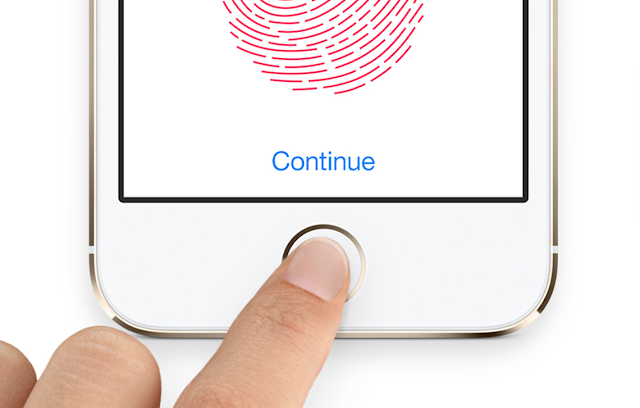Thursday, August 25, 2016
Future iPhones could capture photo and fingerprint of the thief that stole your device
Apple may be interested in an anti-theft measure that involves covertly capturing both a photo and fingerprint of a phone thief without his or her knowledge. This system was detailed in a new patent application published today and suggests Apple may incorporate some version of the technology into future iPhones and iPads. The company imagines a system by which a "trigger condition" would result in the collection of biometric information on whomever is holding the iPhone. These trigger conditions could be unauthorized access from a third-party device or the detection of an unauthorized user attempting to bypass the security features of the phone.
This biometric information "may be one or more fingerprints, one or more images of a current user of the computing device, video of the current user, audio of the environment of the computing device, forensic interface use information, and so on," the patent abstract details. "The computing device may then provide the stored biometric information for identification of one or more unauthorized users."
There are some technical hurdles here. As it stands today, Apple’s TouchID fingerprint-reading technology requires users to hold down their finger numerous times in a variety of different angles to accurately capture the print. It’s unlikely the company would devise a system that depended entirely on a thief inadvertently pressing their thumb on the home button repeatedly. However, future versions of Touch ID and Apple's fingerprint scanners may be able to collect fingerprints in a more efficient manner.
More likely, at least in the near term, is a way to covertly capture photos, video, and audio at a system level, which would allow a stolen iPhone to more easily log who was trying to access its contents and let authorities ID the suspect. Other apps and services have tried this before. For instance, Lookout is an iOS and Android app that automatically snaps photos using a device’s front-facing camera if it detects any suspicious behavior, like any tampering with the device's security settings. Apple could be thinking about implementing something similar in future versions of iOS. The patent also outlines way to both store this information and cross-check it with online databases.
While just an application, these types of security features raise some privacy and legal red flags. If Apple has a way to covertly capture and store biometric information, even if it’s an opt-in feature designed to protect consumers, it could tarnish the company’s reputation with regards to user security. CEO Tim Cook has routinely used his company’s record on privacy — and its decision not to store any unencrypted information — as a tool to tout Apple hardware and software, even in the face of FBI investigations. So we may not see any unprecedented anti-theft measures like this in consumer products any time soon.
Subscribe to:
Post Comments (Atom)

No comments:
Post a Comment